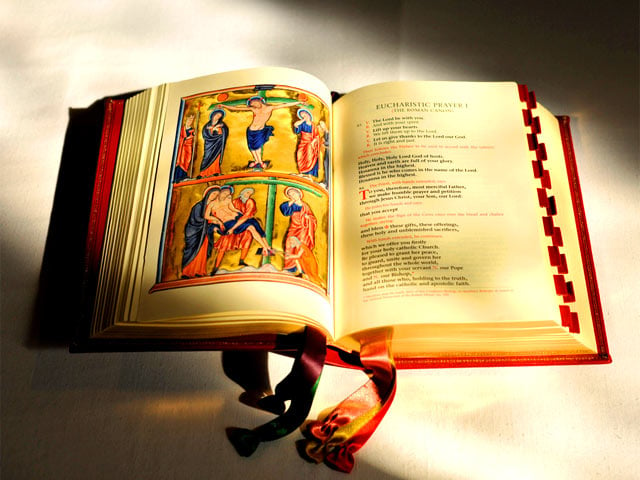- Home
- Our Community
- Our Faith
- Our Ministries
-
Parish Life
- Calendar of Events
- St. Aidan's Video Links
- Parish Blog
- News Archive
- Mass Etiquette and Information
- Ad Orientem News and Facts
- Catholic Links
- Prayers and Announcements
- Luis Dizon Reflections - Archive
- Bulletin
- Contact Us
- Search

The Coming Day (33rd Sunday in Ordinary Time)
Click here for the Sunday Readings
Malachi is listed as the last book in the Christian Old Testament. Its position is significant for our understanding of redemptive history, because the prophecies contained in it serve as a bridge linking the Old and New Testaments together. The prophet Malachi lived during the latter part of the Old Testament period, known as the Second Temple Period.
In his book, Malachi prophesies that God would send a messenger who would prepare the way for His coming. This foretells the coming of John the Baptist. After John, God Himself would come in the person of the Jesus Christ (Malachi 3:1-4, cf. Mark 1:1-4). In the last chapter of Malachi (4:1-6), we see a prophecy of a coming day where God will exact judgment. The wicked will be consumed in fire. The righteous, however, will be vindicated. The sun of righteousness would shine upon them, a reference to Christ and His salvation.
This same teaching is given by Jesus in the Gospel reading (Luke 21:5-19). His coming divided those Jews who believed in Him from those who disbelieved. Those who disbelieved were judged, and this judgment came when the Jerusalem temple was destroyed in AD 70. The Church would then go on to spread to the far corners of the earth, to fulfill Jesus’ words: “And this gospel of the kingdom will be preached throughout the whole world, as a testimony to all nations; and then the end will come” (Matthew 24:14). This marked the end of the Old Covenant era.
This also points forward to an even greater judgment at the end of the present age. The prophecies regarding the end of the Old Covenant era also point towards Christ’s Parousia (Second Coming). On that day, God will judge not just Israel, but the whole world. We affirm this every Sunday in the Creed: “He will come again to judge the living and the dead, and His Kingdom will have no end.” We recite this every Sunday in order to remind ourselves that we live not for this world, but for the next, and that all our lives should be oriented towards that future.
J. Luis Dizon
